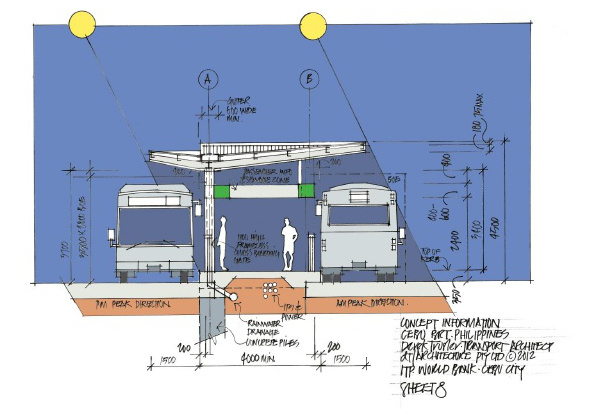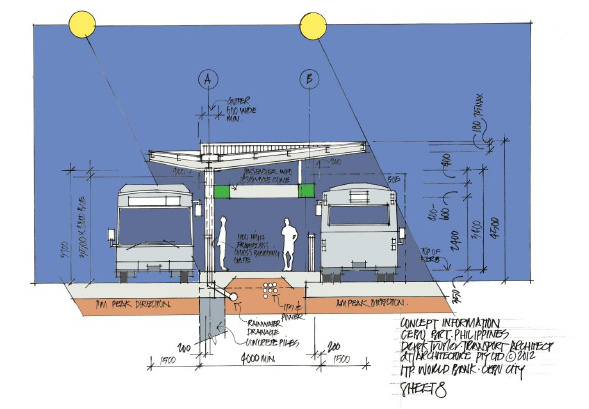 Cebu City is set to become the first city in the Philippines to implement a more integrated public transport system with the planned Bus Rapid Transit (BRT) System. BRT systems, when implemented well, are able to provide mass transportation that effectively matches the supply of and demand for public transport at a lower cost compared to conventional rail-based mass transport systems. BRT systems also prioritize the integration of non-motorized transport into the system. In the case of Cebu City, better walking environment and pedestrian facilities are planned. Because of these features – prioritization of public transportation and integration of non-motorized modes, BRT systems can greatly mitigate air pollution and greenhouse gas emissions, and help make cities more livable.
Cebu City is set to become the first city in the Philippines to implement a more integrated public transport system with the planned Bus Rapid Transit (BRT) System. BRT systems, when implemented well, are able to provide mass transportation that effectively matches the supply of and demand for public transport at a lower cost compared to conventional rail-based mass transport systems. BRT systems also prioritize the integration of non-motorized transport into the system. In the case of Cebu City, better walking environment and pedestrian facilities are planned. Because of these features – prioritization of public transportation and integration of non-motorized modes, BRT systems can greatly mitigate air pollution and greenhouse gas emissions, and help make cities more livable.
This study assessed the environmental and health benefits of the Cebu BRT system. It conducted:
- air sampling to determine baseline air quality along the proposed BRT corridor ;
- an analysis of the environmental benefits of the BRT corridor using the Transportation Emissions Evaluation Model for Projects (TEEMP) tools which have been adopted and used by several international organizations such as the Global Environment Facility (GEF), the Asian Development Bank (ADB) and the World Bank; and
- an analysis of the health benefits from the proposed BRT, using the Simple Interactive Models forbetter air quality (SIM-air) tools developed by UrbanEmissions.info and which have been applied tomore than ten cities worldwide
More details are available from the Feasibility Study conducted by Integrated Transport Planning, Ltd.
